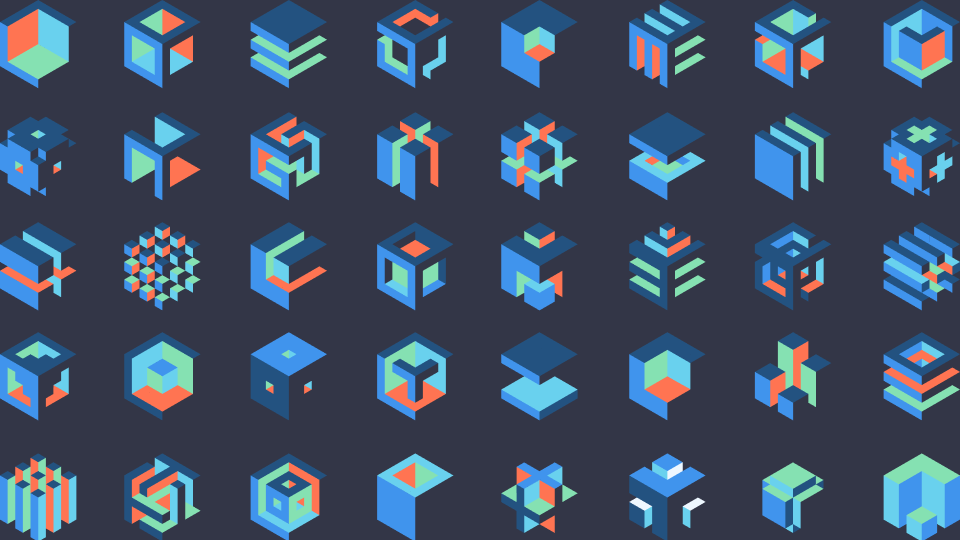
Initially centered on financial transactions related to cryptocurrencies, blockchain technology is now the bedrock of decentralized applications (DApps) surrounding Web3, the NFT ecosystem, the Metaverse, and many other industrial applications. There are now hundreds of different blockchains that fit various use cases.
As more industries explore the potential implementation of its profound innovations and seek to enter the blockchain market, choosing the most suitable network for your enterprise, business, service, or product is a real challenge. The benefit of having hundreds of blockchains is you can choose the ideal platform for your specific use case. However, this can become a daunting choice given the number of options.
This article explores blockchain platforms’ main differentiators, strengths, and features to help you select an appropriate platform for your business.
Consultation about business adoption can be tricky since most decision-makers don’t have the slightest idea of the particular blockchain that will address and satisfy their business requirements. Some factors to consider include the following:
Public networks such as Bitcoin, Ethereum, and several other second-tier platforms are accessible through the internet, and anyone can run the nodes. They require payments using cryptocurrencies to run applications or transact business. Public networks have existing infrastructure cheaper to join, but users have limited control besides numerous bottlenecks that could curtail performance. Private Blockchains are, on the other hand, run by the organization and can support higher performance while offering more privacy options. It’s also easier to align a private network with niche-specific applications.
Blockchains may be based on the same technology, but their different features determine their ultimate functionality. Their primary purposes are as varied as their names since they are designed to process data differently. For example, while Bitcoin, Ethereum, and Ripple all perform financial transactions, Bitcoin acts as a decentralized currency, Ethereum facilitates smart contracts, and Ripple thrives at enabling cross-border monetary transfers. Ensure your preferred blockchain supports the features of your business before choosing.
They may be designed to offer a secure way of sharing and storing data, but no blockchains are created equal. We recommend carefully checking a platform’s security features, mainly if your project handles private or sensitive data. Essential qualities to consider include the blockchain’s cryptographic methods, how records and users get verified, and how frequently they update the platform.
The number and diversity of brands using a given blockchain and whether there’s a community surrounding a platform indicate its robustness. A dynamic blockchain platform addresses and implements technological advancements as they change over time, besides regularly updating and patching up emerging bugs and security issues.
As blockchain technology continues to show more potential use cases beyond Bitcoin and cryptocurrencies, below is an outline of some emerging blockchain platforms and their applications across government, business, finance, and other industries.
Avalanche enables users to quickly and affordably build highly scalable decentralized applications using minimal hardware. Per its website, users can launch and customize their DApps in private or public blockchains. Since the platform boasts energy efficiency, users’ computers remain relatively cool while using the blockchain.
The Binance Smart Chain enables users to create Web3 applications besides maintaining a crypto trading platform and Binance’s native cryptocurrency. Binance smart chain is ideal for users interested in building finance and gaming DApps and offers up-to-date tutorials for new blockchain developers.
The Cardano blockchain platform is an “enabling force for positive change and progress.” The platform’s leading use cases include:
Ethereum is a leading open-source technology platform that’s the mother of everything associated with decentralized finance (DeFi), Web3, non-fungible tokens (NFTs), and decentralized social networks. The platform also offers developers dozens of tutorials on the blockchain, Web3 tools, and smart contracts.
Hyperledger Fabric is an open, enterprise-grade blockchain platform offering users modular architecture ideal for numerous applications. The blockchain provides robust security and is ideal for projects that involve transactions encompassing multiple parties.
The Multichain platform offers high-speed tools for creating and deploying blockchain apps. Users can build open or closed apps or customize blockchains for optional proof-of-work consensus.
The R3 Corda blockchain is a specialized platform popular with regulated industries like international trade organizations, banks, and capital markets. The platform offers robust security that facilitates the free movement of assets among parties while maintaining regulatory compliance. Corda can be used for apps associated with cryptocurrencies, global trade, payments, and fraud detection, among others.
Solana is a stable platform designed to facilitate the creation of scalable, user-friendly apps. According to its website, Solana is the fastest blockchain in the world at 400 millisecond block times. The blockchain boasts a super-secure, low-cost, and censorship-resistant environment and tutorials on how to create DApps.
The Stellar platform is ideal for blockchain developers intent on apps that facilitate financial access. The open-source network has features that enable a connection between fiat and crypto institutions using a single integration.
Tezos is designed with a modular architecture that promises high scalability and energy efficiency due to its proof-of-stake consensus method. The platform offers “institutional grade security” and is ideal for projects that demand super-smart contracts and the creation of NFT marketplaces.
With the global blockchain market estimated to reach $64.7 billion by 2026 and the technology evolving rapidly, there’s no doubt that the industry will continue to find new use cases for businesses. Since we’ve only scratched that surface for the number of platforms currently available, users must spend time analyzing the available options concerning their project goals to pick the right platform. It’s, therefore, imperative to consider the number of features and purposes a platform can have so you can reap the full benefits of the technology.